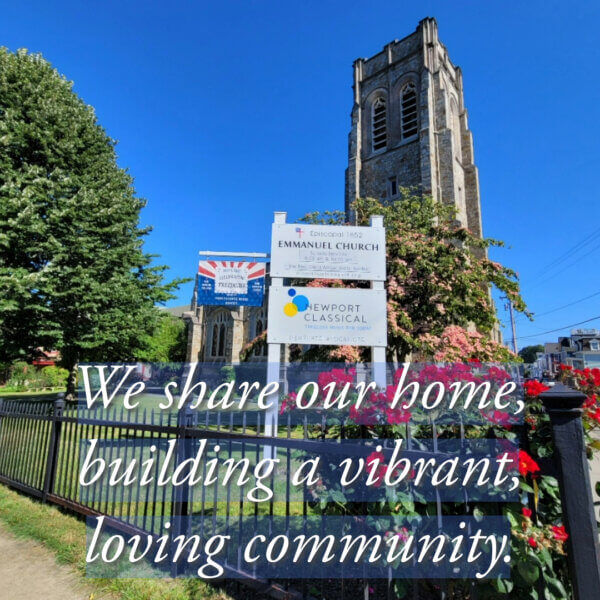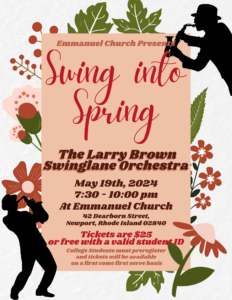
All We Like Sheep — and Shepherds
 Happy Good Shepherd Sunday, as today is known in the church — this Fourth Sunday of Easter. Today, we get shepherd images both in the 23rd Psalm and in the “I am the good shepherd” passage from John’s gospel. Because both the 23rd Psalm and the I am the good shepherd” passage are lifelong memories for many of us, sometimes we can even forget that the psalm long preceded Jesus’ birth, and think of Jesus himself as the Lord who makes us lie down in green pastures and beside still waters for his name’s sake. But Jesus the rabbinical scholar would have known the 23rd psalm from childhood, just like the crowd listening to the I am the good shepherd passage — and us listening in now. Surely Jesus used the good shepherd image because it was so familiar to the crowd in his first century context, both from their knowledge of the psalms as faithful Jewish people and from their own daily lives, lived around sheep and shepherds. Because the Good Shepherd image is so familiar to us, and by and large, we’re not on a daily conversational basis either with sheep or first century rulers and governance, it’s easy for us to fall into oversimplifying our understanding. But a simplistic understanding keeps us from seeing the spectrum of roles for both shepherds and sheep, and their various interactions with each other, in play in these nuanced scriptural images.
Happy Good Shepherd Sunday, as today is known in the church — this Fourth Sunday of Easter. Today, we get shepherd images both in the 23rd Psalm and in the “I am the good shepherd” passage from John’s gospel. Because both the 23rd Psalm and the I am the good shepherd” passage are lifelong memories for many of us, sometimes we can even forget that the psalm long preceded Jesus’ birth, and think of Jesus himself as the Lord who makes us lie down in green pastures and beside still waters for his name’s sake. But Jesus the rabbinical scholar would have known the 23rd psalm from childhood, just like the crowd listening to the I am the good shepherd passage — and us listening in now. Surely Jesus used the good shepherd image because it was so familiar to the crowd in his first century context, both from their knowledge of the psalms as faithful Jewish people and from their own daily lives, lived around sheep and shepherds. Because the Good Shepherd image is so familiar to us, and by and large, we’re not on a daily conversational basis either with sheep or first century rulers and governance, it’s easy for us to fall into oversimplifying our understanding. But a simplistic understanding keeps us from seeing the spectrum of roles for both shepherds and sheep, and their various interactions with each other, in play in these nuanced scriptural images.
As Berkeley Divinity School Dean Andrew McGowan wrote in a fascinating blog entry this week on the Good Shepherd text, we have to be careful not to reduce the message in John’s gospel to the shepherd image itself. The texts are all saying something much more than “God/Jesus is a shepherd.” They are in fact all about power and its exercise. Unless we grasp this, we risk making this shepherd/Jesus oppressive, as well as boring. The stakes are high. I know that after meeting Dean McGowan last week here at Emmanuel, you can just hear him spinning out the risk of Jesus’ becoming oppressive, as well as boring, in his “thick Connecticut accent,” as he called it. Instead the sheep and shepherds in today’s readings create a spectrum of images with complicated interrelationships. It’s also important to remember that God is portrayed in scripture as both shepherd and sheep: The Lord is my shepherd, I shall not want. Jesus, Lamb of God, who takest away the sins of the world. The images are nuanced and fluid, and that’s where theology happens.
Community Can Be A Shepherd
 As I’ve shared many times before, our friend Dean McGowan also often says, When you’re wondering what a passage of scripture is about, you can be pretty sure it’s about you. So where do we find ourselves in the readings on this Good Shepherd Sunday? What I love about the Good Shepherd metaphor is that it give us all a place in the story. When we let ourselves really engage with the image of the shepherd, it’s much bigger than we think. Theology and ethics professor Malinda Elizabeth Berry reminds us that both Rachel in Genesis chapter 29:9 and Zipporah and her sisters in Exodus chapter 2:16 — our mothers in the faith — were skilled shepherds, safeguarding their flocks with a slingshot and staff. All of a family’s wealth and well-being were tied up in their flock, so daughters and sons serving as shepherds have a very important job. The sheep mean everything to the shepherd. As I traveled with pilgrims all over the holy lands, I often saw both girl and boy shepherds watching over the family’s sheep. How does it expand your understanding and connection to God to consider these women shepherds?
As I’ve shared many times before, our friend Dean McGowan also often says, When you’re wondering what a passage of scripture is about, you can be pretty sure it’s about you. So where do we find ourselves in the readings on this Good Shepherd Sunday? What I love about the Good Shepherd metaphor is that it give us all a place in the story. When we let ourselves really engage with the image of the shepherd, it’s much bigger than we think. Theology and ethics professor Malinda Elizabeth Berry reminds us that both Rachel in Genesis chapter 29:9 and Zipporah and her sisters in Exodus chapter 2:16 — our mothers in the faith — were skilled shepherds, safeguarding their flocks with a slingshot and staff. All of a family’s wealth and well-being were tied up in their flock, so daughters and sons serving as shepherds have a very important job. The sheep mean everything to the shepherd. As I traveled with pilgrims all over the holy lands, I often saw both girl and boy shepherds watching over the family’s sheep. How does it expand your understanding and connection to God to consider these women shepherds?
Author Jenna Smith suggests that the community itself can be a shepherd, even though we often think of pastoral shepherding as a one-on-one relationship. The community becomes a shepherd through its generosity, hospitality, worship, and togetherness, caring for the whole and for each member all at once. And that’s where I see us today. We’re all working together to figure this out. Most of you are familiar with Emmanuel’s description of who we are as a community. You’ve heard it in sermons, read it in the weekly newsletter, and it’s likely even printed at the top of your bulletin today. We share our home, building a vibrant and loving community.
Shepherding
 Your vestry has been talking about this Emmanuel identity as we’ve planned and announced Swing Into Spring, our big celebration on May 19 of all we’ve become together. This is a party for the whole community — Emmanuel, Newport Classical, our Salve community, our friends from MLK Community Center, our neighbors on the block, our community gardeners and dog walkers, and everyone who connects with us and what we’re doing together here at Emmanuel. Swing Into Spring is also a way to raise funds for the Community Bridge, our much-needed access ramp into Emmanuel’s main entrance. This access for all will help us open our doors even wider to the whole community — for Sunday worship, Newport Classical chamber series concerts, Soup’s On community meals, growing kale and Swiss chard in the gym for MLK’s food pantry, connecting with the environment and our neighbors in our community garden, and hosting destination weddings and community meetings here in the Nave using our video streaming system with direct hearing aid access.
Your vestry has been talking about this Emmanuel identity as we’ve planned and announced Swing Into Spring, our big celebration on May 19 of all we’ve become together. This is a party for the whole community — Emmanuel, Newport Classical, our Salve community, our friends from MLK Community Center, our neighbors on the block, our community gardeners and dog walkers, and everyone who connects with us and what we’re doing together here at Emmanuel. Swing Into Spring is also a way to raise funds for the Community Bridge, our much-needed access ramp into Emmanuel’s main entrance. This access for all will help us open our doors even wider to the whole community — for Sunday worship, Newport Classical chamber series concerts, Soup’s On community meals, growing kale and Swiss chard in the gym for MLK’s food pantry, connecting with the environment and our neighbors in our community garden, and hosting destination weddings and community meetings here in the Nave using our video streaming system with direct hearing aid access.
We serve our community by sharing this building we’ve been given for ministry. And that sharing forms us as a community, as we do our best every day to listen and work with each other with love, curiosity, and imagination as we take on this big project that is itself Emmanuel’s meaning and purpose. Sharing our home is not a sideline or a subplot, but the very essence of who we are and what we do. In this, the Good Shepherd image — and the necessary attendant sheep — show our community at Emmanuel that we all have a place in the story. Sometimes we’re shepherds, with the necessary advance team skills to keep our community orderly and on track. And sometimes we’re sheep, happily munching clover and ordering items from the Amazon wishlist to help host this great event. Scripture gives us complex and nuanced metaphors to invite us to wonder — and to understand — that we each have an essential role in this reign of God, and that God is in all that we do. Amen
